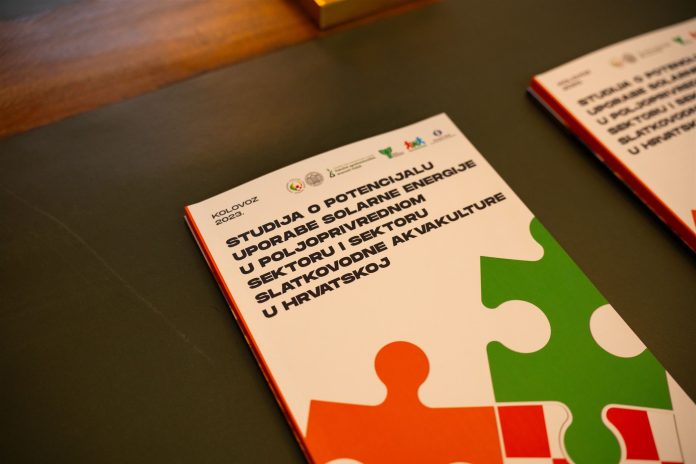On Wednesday, September 6th, at the Croatian State Archives in Zagreb, the promotion of the specialized “Study on the potential of solar energy use in the agricultural and freshwater aquaculture sectors in Croatia” was held. The study was initiated by the Renewable Energy Sources of Croatia (OIEH) and funded by the European Bank for Reconstruction and Development (EBRD). In addition to OIEH, the study involved the Faculty of Agriculture of the University of Zagreb, the Faculty of Agrobiotechnical Sciences in Osijek, and the Institute for Adriatic Culture and Karst Reclamation from Split.
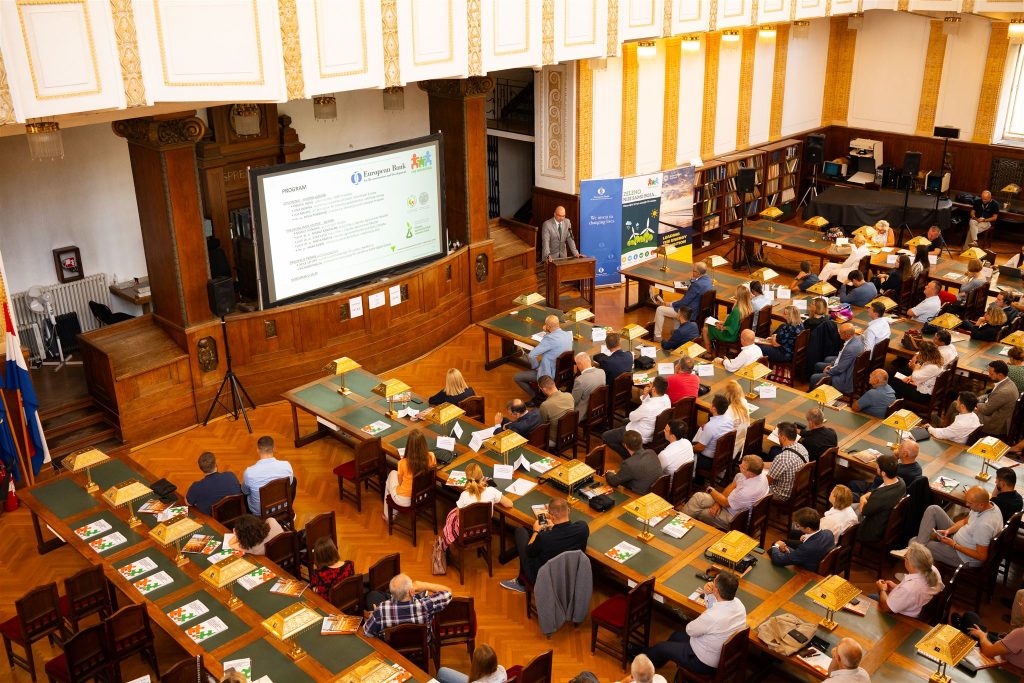
Losses from climate extremes in Croatia increased 16 times from 2018 to 2022. Droughts, floods, and hailstorms caused damages in agriculture worth a total of 1.2 billion euros from 2013 to 2019. Dry periods and rising temperatures will become increasingly significant challenges for Croatian farmers, and agriculture and freshwater fish farming are predicted to be the most vulnerable sectors in the coming decades. The new study presented by OIEH provides answers to these challenges. Agrisolar farms represent a new direction in the world of renewable energy sources, with their main advantage being the dual use of land and ponds, enabling simultaneous food and electricity production, as emphasized during the presentation.
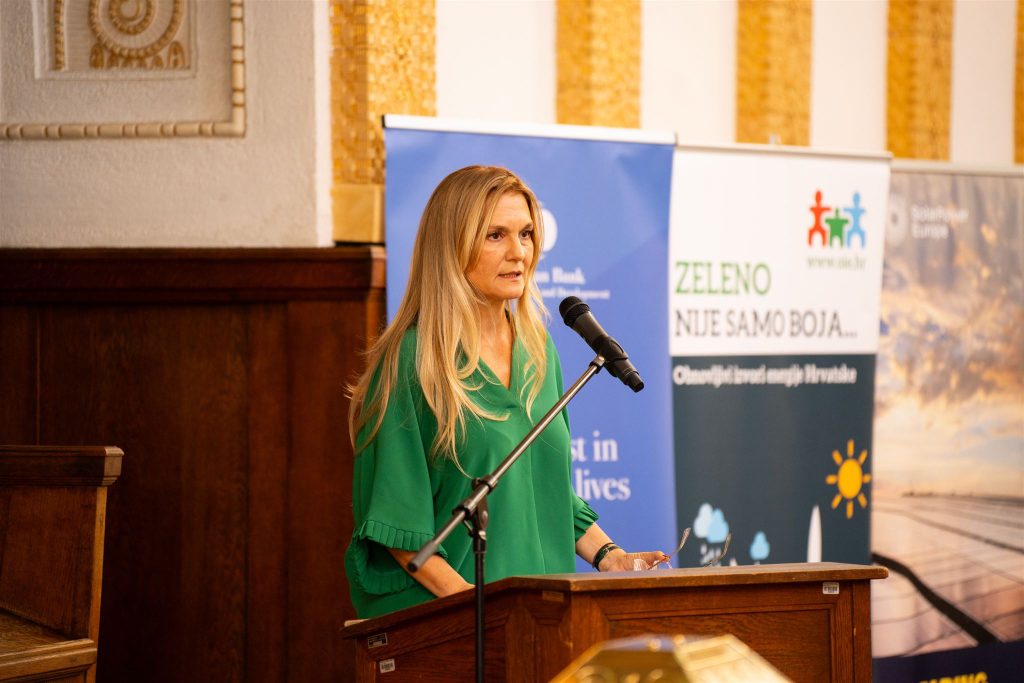
“The future of this technology is best reflected in the words of French President Macron, who stated that agrisolar farms will be one of the cornerstones of the French energy system. Croatia, by allowing the installation of agrisolar and solar farms on all agricultural land registered in the agricultural land use registry, has recognized their value. I must emphasize that the initial impetus came from RESC, where we pioneered the promotion of this technology, and with its implementation, Croatia has joined the best and become one of the 10 EU countries that have opted for its application,” said Maja Pokrovac, RESC managing director
Ivo Milatić, State Secretary of the Ministry of Economy and Sustainable Development, spoke about the legislative changes that have enabled the development of agrisolar farms.
“The Government of the Republic of Croatia has decided, with the aim of strengthening Croatia’s energy self-sufficiency, to facilitate and expedite the development of renewable energy projects. The Ministry of Economy and Sustainable Development has streamlined the energy regulatory framework for agrisolar farms, eliminating the need for a public tender for energy permits. The government will continue to work on simplifying all procedures to elevate Croatia even further on the scale, aligning it with the most developed countries that adopt green technologies,” emphasized State Secretary Milatić.
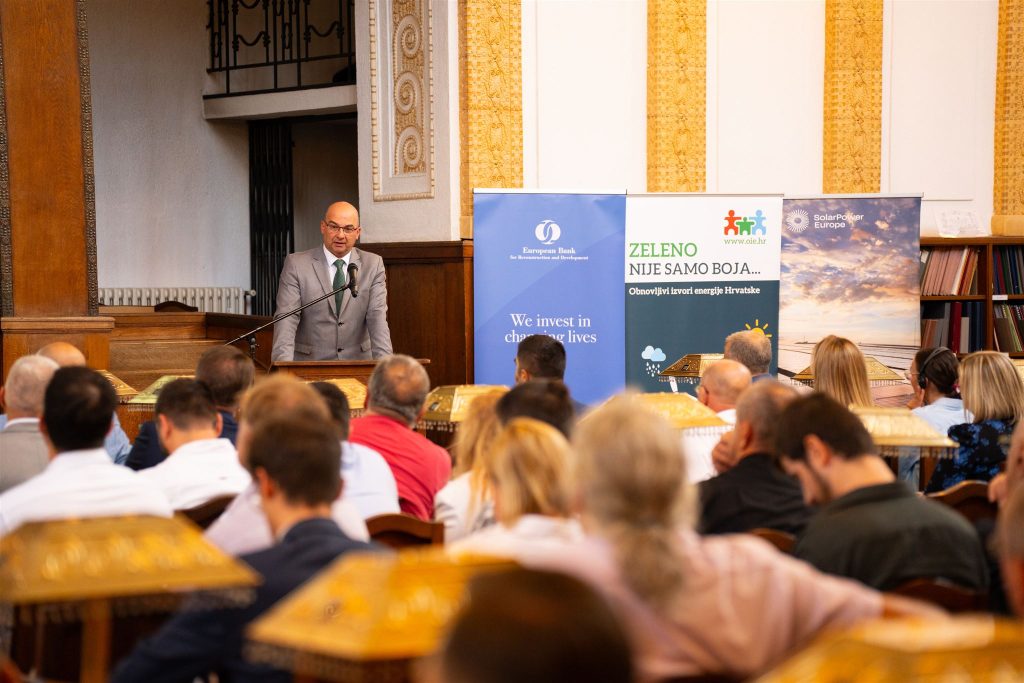
The Chief Banker of the EBRD in Croatia, Hrvoje Jazvić, also spoke about the significant potential of using renewable energy sources. He emphasized that agrisolar farms represent a new momentum in the production of clean electrical energy while simultaneously providing protection to agricultural crops and aquaculture fish farming.
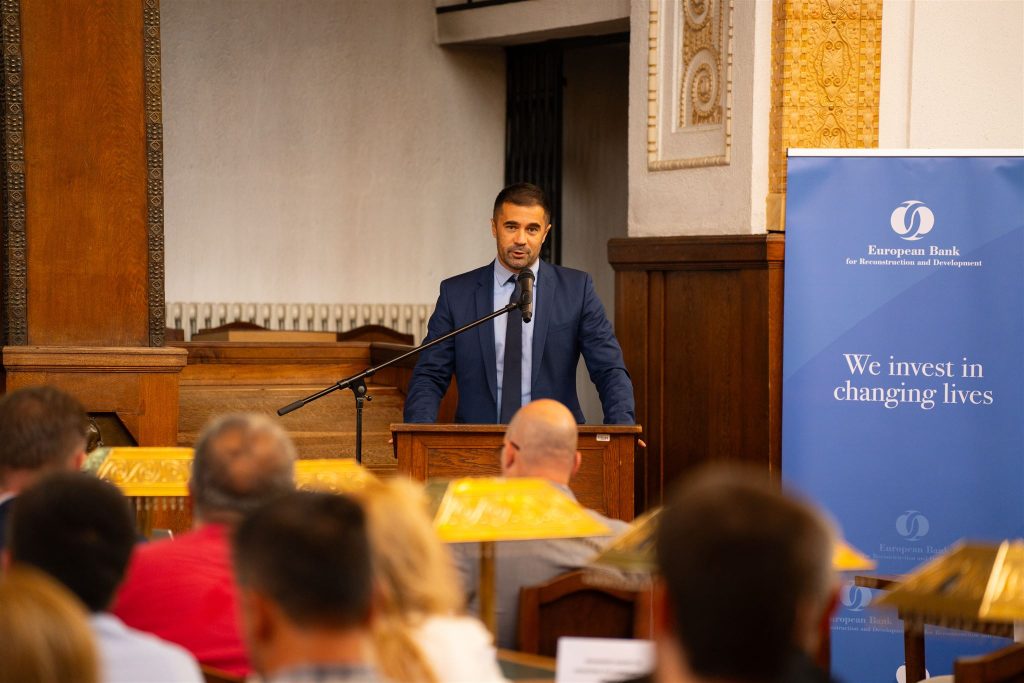
“By utilizing agrisolar farms on just 1% of the total available agricultural land in Croatia, which amounts to approximately 1,000 hectares, we can contribute not only to the protection of agricultural production but also to the overall annual electricity production of more than 1,000 GWh. This is three times the current installed capacity of photovoltaic power plants in Croatia. Furthermore, the implementation of floating solar power plants in existing freshwater aquaculture allows us to achieve significant potential and annual production of over 16,000 tons, which is four times more compared to production in Croatia in recent decades.”
Lina Dubina, representative of SolarPower Europe the leading European organization promoting energy transition, presented examples of best practices in the operation of agrisolar farms in the European Union and emphasized why it is important to support their development.
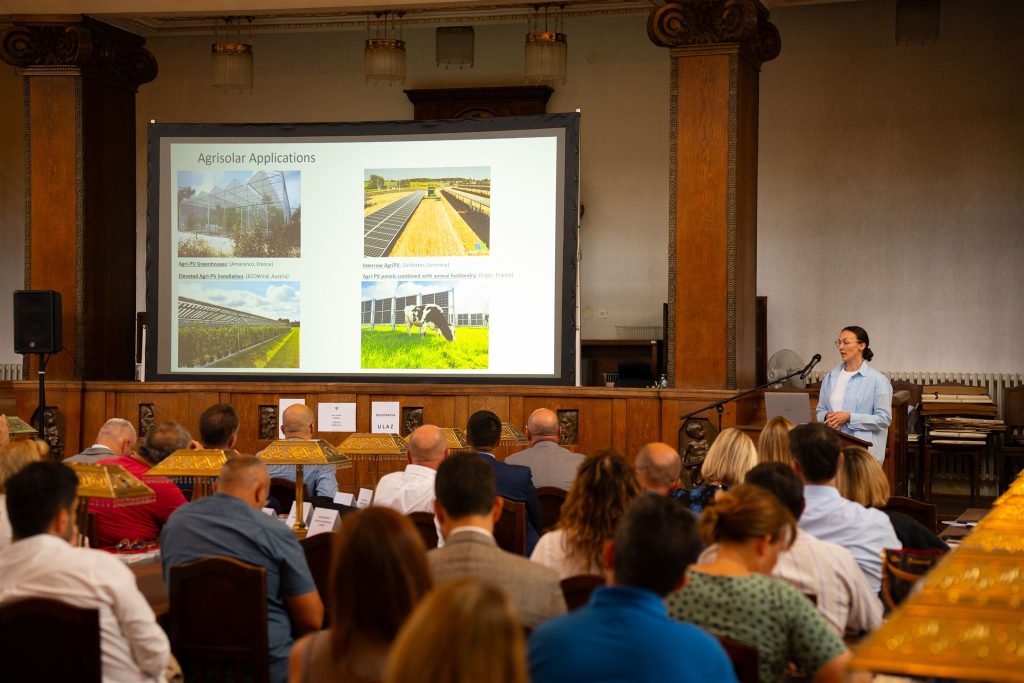
“The World Bank states that the continuous increase in temperature in the coming years will significantly impact Croatian agriculture and the health of the population. Part of the solution can be greater use of agrisolar technology, which allows for dual land use. It’s great to witness the changes that Croatian legislation has adopted for the development of agrisolar farms, all with the tremendous effort of Renewable Energy Sources Croatia (RESC), who recognized and initiated this trend,” said Dubina.
The central part, presenting the findings of the study on the potential for the development of agrisolar and aquasolar systems, was conducted by experts from the Faculty of Agriculture, University of Zagreb, the Faculty of Agrobiotechnical Sciences in Osijek, and the Institute for Adriatic Crops and Karst Reclamation from Split. They emphasized that the study, through detailed and comprehensive analysis, identified viticulture, fruit growing, cultivation of aromatic and medicinal herbs, grassland farming, and fish farming as the most suitable agricultural sectors for the application of agrisolar systems in Croatia. On the other hand, for vegetable production, cereal production, industrial and fodder crops, it was concluded that these crops, for various reasons, are not yet considered suitable for agrisolar projects, and in such cases, only smaller research projects for agricultural crops can be initiated.
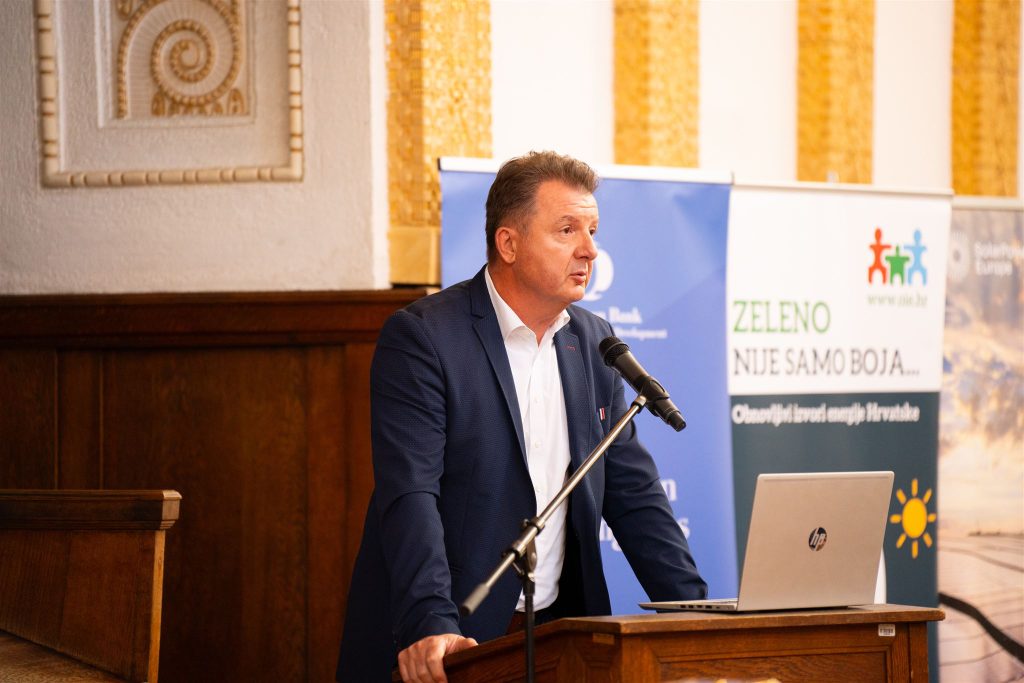
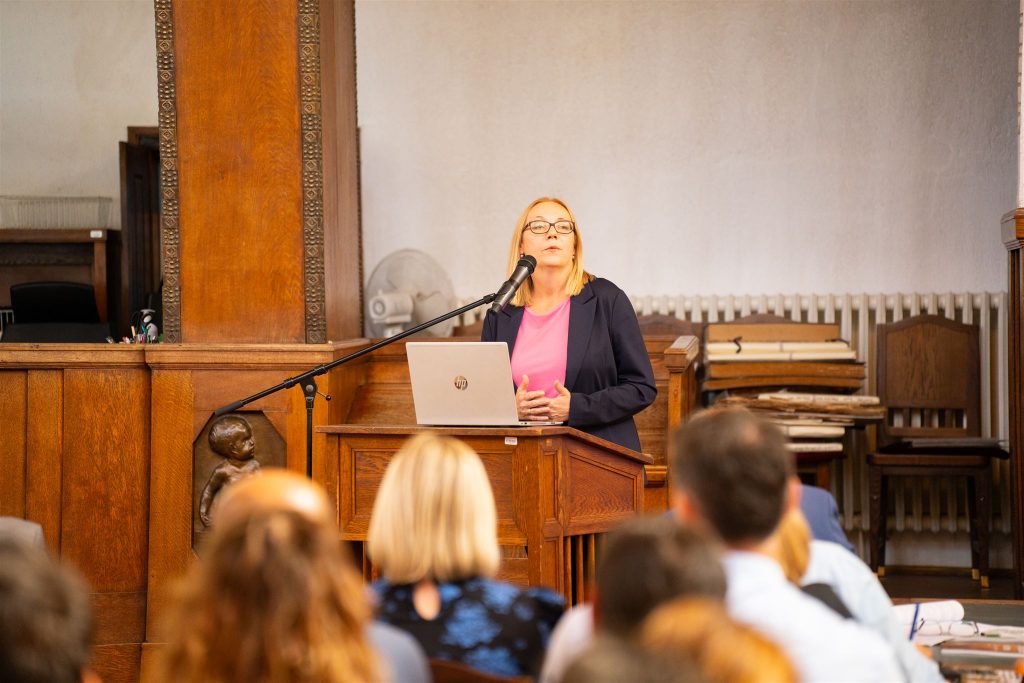
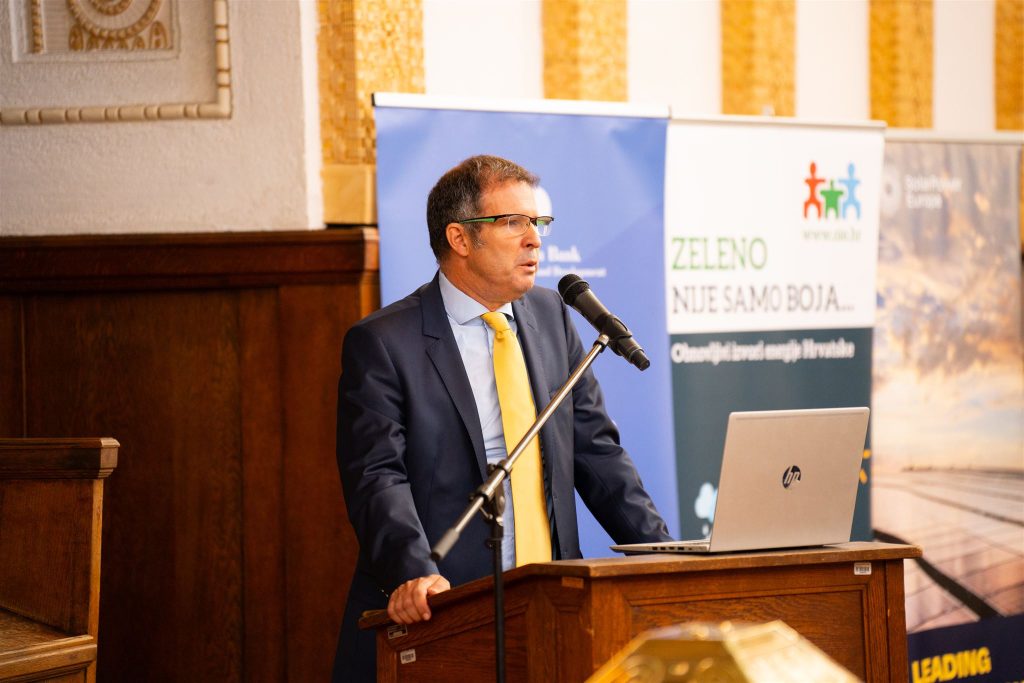
The future development of agrisolar systems, they emphasized, will depend on various factors such as the specific characteristics of each crop, geographical and biological constraints in terms of radiation and shading levels, terrain type, average farm size, legal requirements, the capacity of the available electrical grid connection, the feasibility of each project, etc. Professor Marko Karoglan from the Faculty of Agriculture at the University of Zagreb highlighted that the development of agrisolar systems should be carefully planned. Food production must take precedence, and only then should energy production be considered.
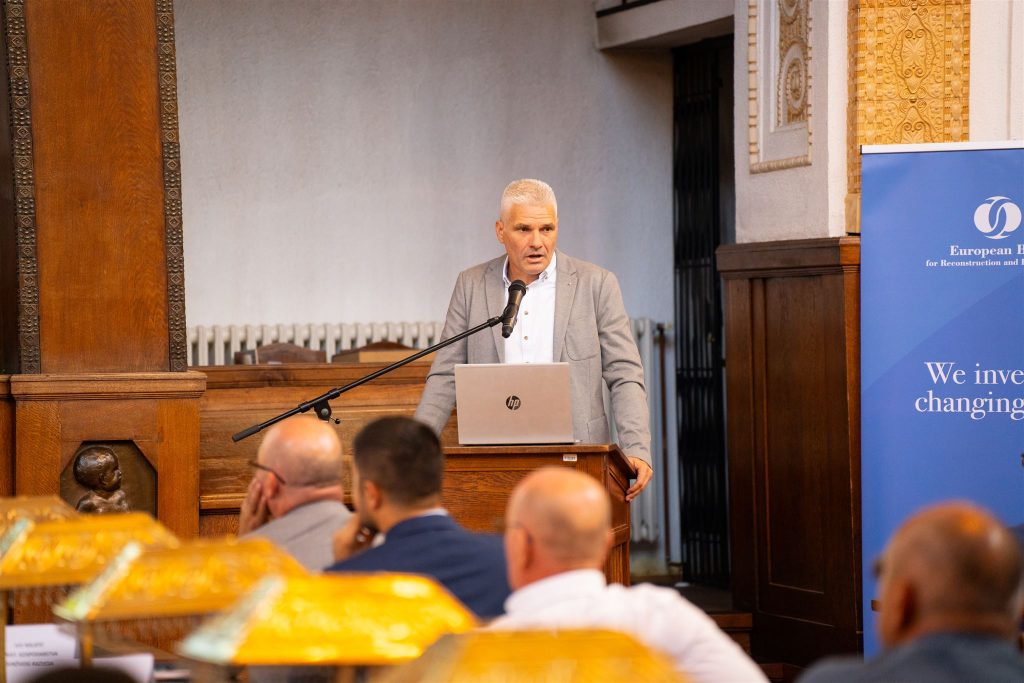
“Agrisolar projects should be viewed as an agrotechnical measure involving partial shading of crops grown in permanent orchards. However, it will be necessary to take all measures to prevent negative impacts on the soil and plants. It is desirable for agrisolar systems to be equipped with a monitoring system that measures the soil condition and microclimatic conditions under the solar panels and their impact on agricultural crops and the environment. Monitoring should be carried out for up to five years after the system is installed.”
While almost everywhere they have demonstrated multiple benefits, often even increased food production, one of the challenges that arise with the development of agrisolar projects is ignorance, lack of understanding, and misconceptions. Therefore, Mario Turković, the coordinator of the study, believes that additional efforts should be made to educate the public about all aspects of agrisolar development.
“It is not uncommon to hear that by installing agrisolar power plants, agricultural land will be destroyed or significantly compromised by the operation of energy facilities. This is one of the common misconceptions about the operation of agrisolar power plants, and it is extremely important to disseminate relevant and objective information about the operation of agrisolar power plants, their advantages, and their disadvantages. OIEH has made its contribution by producing this comprehensive study, but it is of utmost importance that relevant ministries, the academic community, chambers, and associations exchange objective and verified information about the advantages and disadvantages of agrisolar power plants, providing specific guidelines and examples of best practices.”
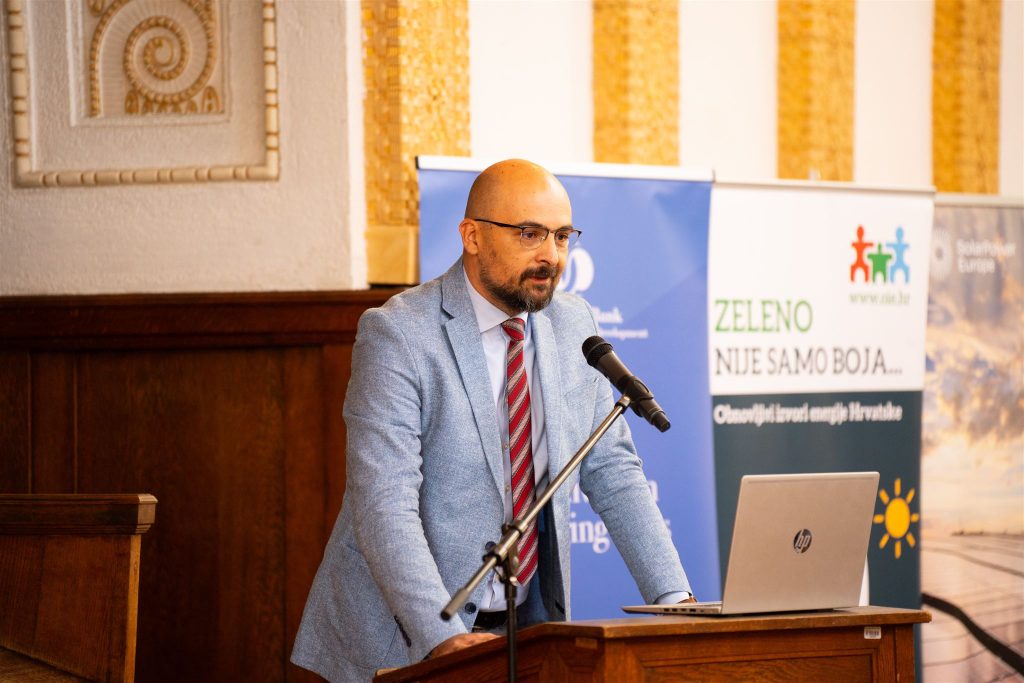
The amendments and supplements to the Spatial Planning Act and related sub-legislation have created the basic legal prerequisites for a more intensive implementation of agrisolar power plants, allowing Croatia the opportunity to become a European solar powerhouse.


